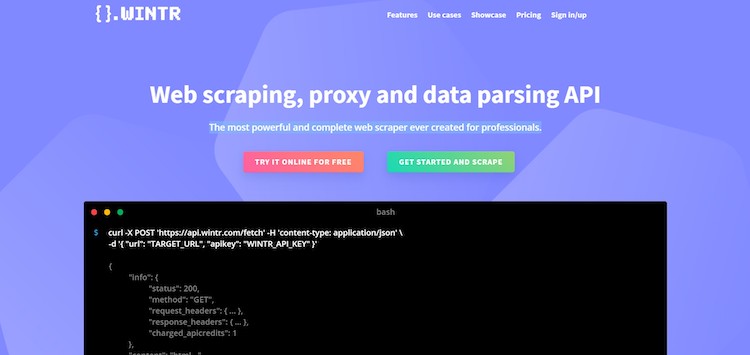In recent years, more and more people have known about web scraping and applied this technique to collect huge amounts of data from many different sources. No matter which field data scraping is used in, a website downloader can bring many advantages.
In this article, we’ll help you get some know-how about web scraping and using Python to scrape a website.
What is web scraping?
Web scraping is a powerful technique deployed to fetch large amounts of data from a particular website. Web scraping helps to extract unstructured data on websites and store them in a structured form such as a local file in your computer or a database file format.
What can web scraping be used for?
Web scraping can be beneficial in many different fields. Here are some examples of how web scraping can be used:
Price comparison: you can use web scraping to extract data from online shopping websites to check out their product prices, reviews, or descriptions.
Competitor analysis: you can get important insights by using web scraping to collect information about your competitors’ product lines and categories. Then you can make some adjustments to your products to attract more customers.
Lead generation: web scraping could help you find potential customers that you could profit from by collecting all the business information and contact details like email id or phone numbers from websites like Yellow Pages or Trade Fair.
SEO monitoring: web scraping would help you find out what to focus on in your website. You would know which information receives the most attention from internet users and how content moves in rankings over time.
Therefore, you can create friendly title tags and choose keywords to make your website rank on the first page of Google.
Social Media scraping: you can also use web scraping to extract data from social media websites such as Facebook, Twitter, Instagram, and so on.
Data scraped from social media gives you a great opportunity to understand individuals or groups and identify market trends.
Why should you use Python for your web scraping?
Python is a popular high-level programming language. Python can work on many different platforms and has a simple syntax similar to the English language, therefore, it’s easy to code.
Using Python is one of the easiest ways to perform web scraping. Below are some reasons why Python is the most suitable programming language for web scraping.
First of all, the purpose of web scraping is to collect the web data which would be in HTML format. Python provides one library called Requests, which is a simple HTML library enabling you to integrate your Python programs with web services.
Once you find the data relevant to your project on the web page, you can download it to get valuable insights. To do that, Python provides another library called BeautifulSoup, which helps you fetch particular content from a webpage, delete HTML tags, and save the information.
The final stage of web scraping is saving the collected data in a structured form. With the aid of Python Pandas Library, you can store the data in the desired format.
Besides, there is another application framework in Python called Scrapy, which you can use to perform web scraping.
How does Web Scraping work?
When you start your web scraping, a web scraper sends a request using the HTTP protocol to the targeted URL. To respond to the request, the server sends the data and allows you to read the HTML or XML page. Then the scraper parses the HTML or XML page and fetches specific data selected by the user.
To extract data using web scraping with python, you need to follow these steps:
- Find the URL that you want to scrape
- Inspecting the Page
- Find the data you want to extract
- Write the code
- Run the code and fetch the data
- Store the data in the desired format
Essential knowledge
The article is a basic introduction to web scraping and web scraping with Python. We hope it is formative and can offer some essential knowledge to you. Now it’s time for you to start your web scraping.

